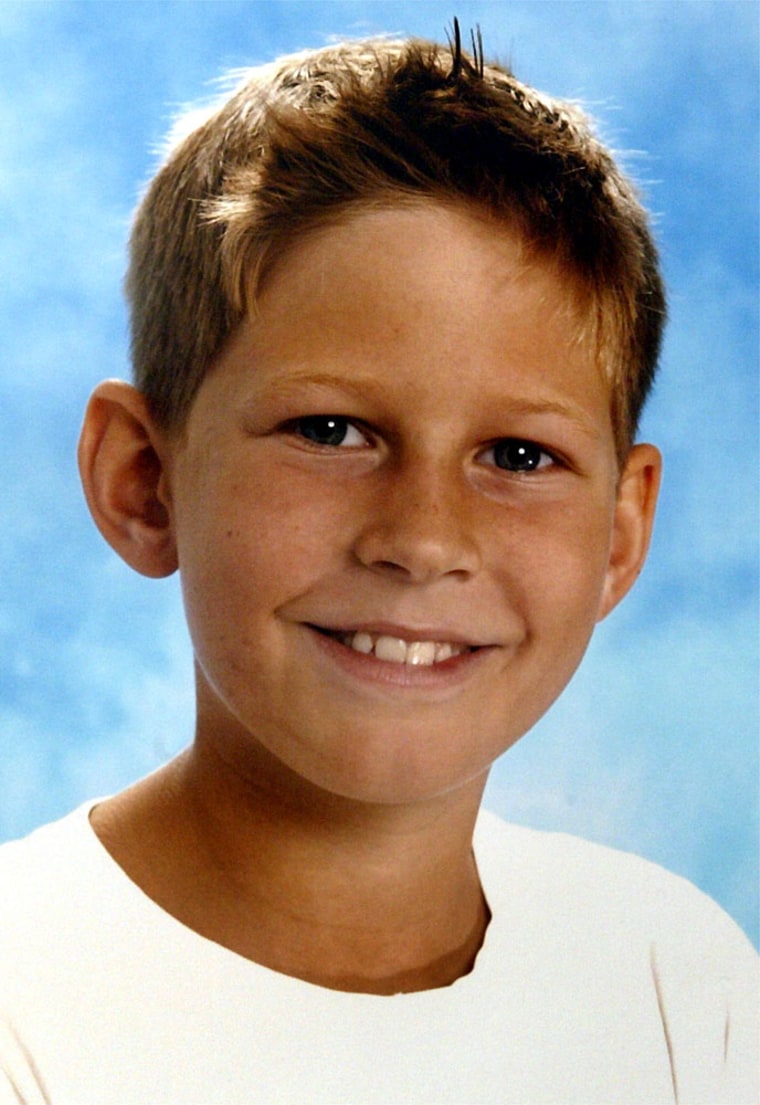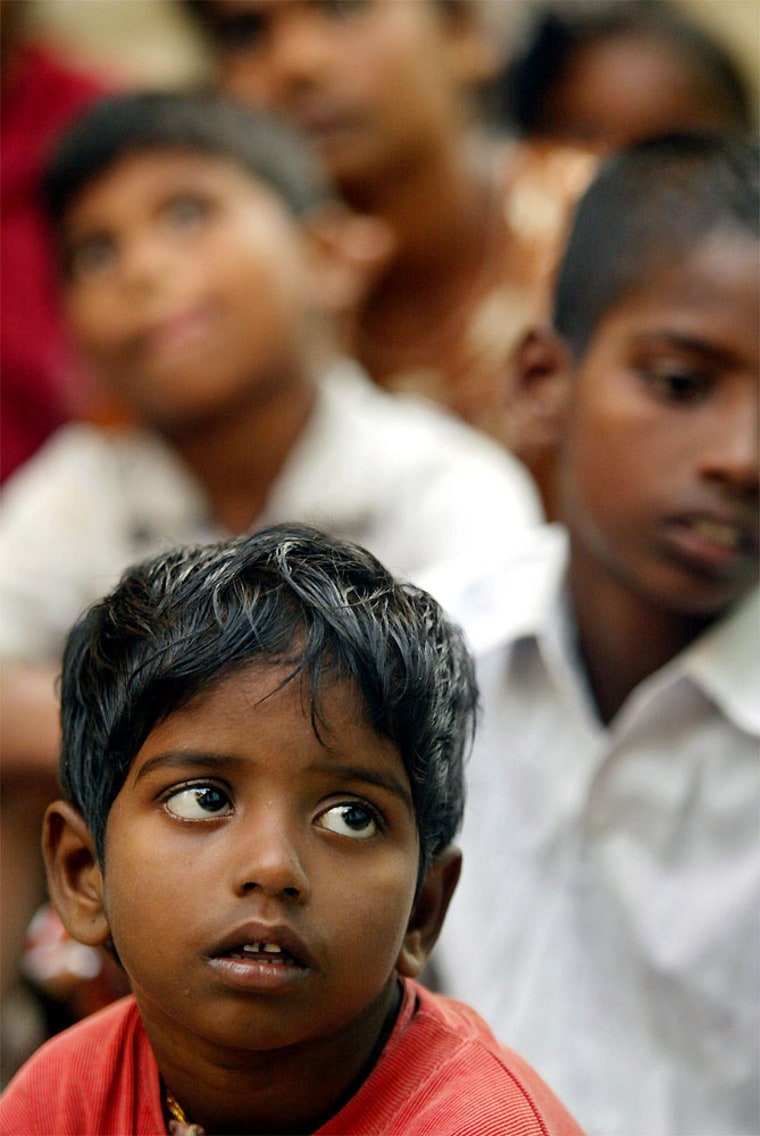The United Nations said Tuesday it was concerned that children orphaned or separated from their parents by Asia’s tsunami could be falling prey to criminal gangs bent on selling them into slavery.
The United Nations said it had received reports of adults’ posing as foster parents and of children’s being shipped from Indonesia to Malaysia for sale, adding to worries about a “tsunami generation” of children also under threat of disease and hunger.
Officers of the U.N. Children’s Fund, or UNICEF, were alarmed when a colleague in Kuala Lumpur received an unsolicited mobile telephone text message that offered to sell children according to buyers’ wishes, John Budd, a spokesman for the agency, told Reuters by telephone from Jakarta.
“Three hundred orphans aged 3-10 years from Aceh for adoption. All paperwork will be taken care of. No fee. Please state age and sex of child required,” the message read.
“If you read that text message, and if it is true, then either they have 300 orphans for sale or they have the capacity to seize children according to orders received,” Budd said.
Children account for at least a third of the 150,000 people killed by the Dec. 26 tsunami. The killer waves ripped children from their parents’ arms, battering some to death and leaving others to survive alone.
Officials were especially on the alert in Indonesia, where trafficking in kidnapped children is a well-established problem. Authorities placed restrictions on youngsters leaving the country, ordered police commanders to be on the lookout for trafficking and posted special guards in refugee camps.
Many Indonesians have received the mobile phone text messages inviting them to adopt orphans from Aceh. The Associated Press was unable to get through to phone numbers given on two of the messages.
“I’m sure it’s happening,” said Birgithe Lund-Henriksen, the child protection chief in UNICEF’s Indonesia office. “It’s a perfect opportunity for these guys to move in.”
Reports across the region
But the problem is not confined to Indonesia. In the wake of the devastating tsunami, there have been unconfirmed reports of dozens of orphaned children being taken by unidentified people across the region, some of them possibly child traffickers.
Swedish and Thai police said Tuesday that they were searching for a 12-year-old Swedish boy last seen leaving a hospital in Thailand with an unknown man in the aftermath of the tsunami.

Police said they could not confirm media reports that the boy, identified as Kristian Walker, had been kidnapped. But the boy was listed as missing by international law enforcement agencies worldwide Tuesday.
A boy matching Kristian’s description was last seen Monday with a German man at a hospital near the resort of Khao Lak, but he has since vanished, despite a desperate search by his U.S. grandfather, Daniel Walker, family and police said.
Thai Foreign Minister Surakiart Sathirathai said his government was working closely with hospitals to prevent human trafficking gangs from taking advantage of the situation. The Swedish branch of Save the Children warned governments in the region to be mindful of children left orphaned or without families, saying they could be potential targets for pedophiles.
In Washington, Adam Ereli, a spokesman for the State Department, said U.S. officials had seen no evidence of organized trafficking in tsunami orphans thus far, but he called reports “very disturbing.”
“That is a very important focus of our diplomatic efforts throughout the year: the trafficking in persons ... the sanctioning of countries that do not take steps against the trafficking of persons,” Ereli told reporters. “This includes women. This includes this crisis, but also as an unfortunate regular feature of the social landscape.”
Perfect conditions for kidnappers
Officials concede that so far they have little hard evidence of specific cases, but they say the aftermath of a natural disaster is a perfect breeding ground for such traffic. Hundreds of thousands of people have been driven from their homes, children have been separated from their families, and the deaths of parents leave their offspring especially vulnerable to criminals.
“We probably underestimated the impact on children. Many people are already talking about the ‘tsunami generation,’” said Wivina Belmonte, a UNICEF spokeswoman in Geneva.
Aid workers hope to head off outbreaks of diarrhea or measles, which can kill children or weaken them so they succumb to other ailments.
“Children were not able to cope with the rush of water in the first days, and since then, they are the first hit in terms of poor access to water and poor access to food, so we suspect that the numbers ... of fatalities will rise,” Belmonte said.
Up to half the population in some affected areas is under 19.
Belmonte praised Thailand for reopening schools soon after the disaster, saying they were the ideal place to deal with the trauma.
“Part of survival is making sure that they deal with the nightmares, they deal with trauma, that they can deal with what it means that their parents and brothers and sisters aren’t around,” Belmonte said.
